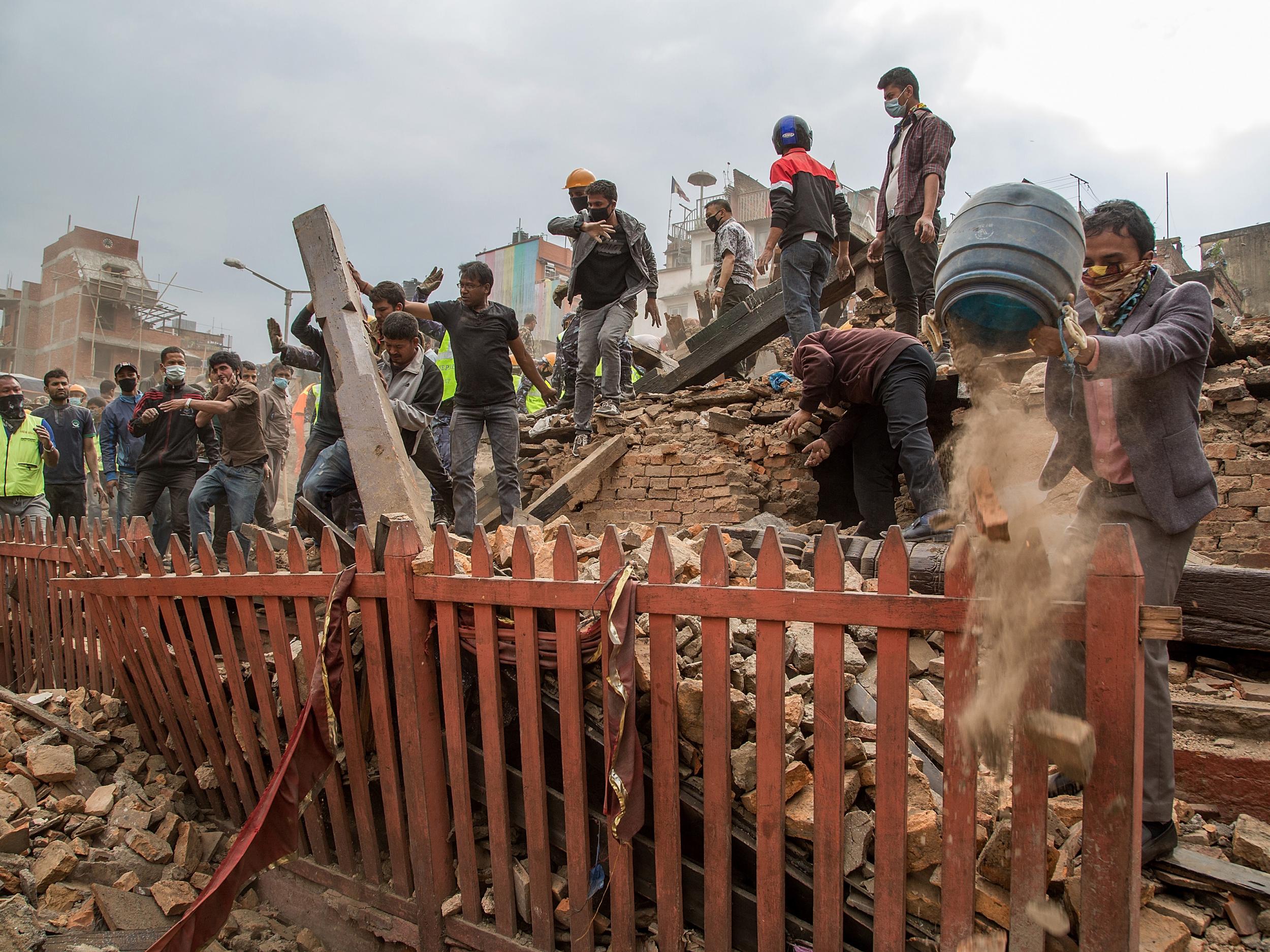Trump administration could deport thousands of Nepalis on temporary residency permits
President officials say temporary protected status has never intended to afford long-term residency to foreigners who may have entered county unlawfully or who lack legal status

Your support helps us to tell the story
From reproductive rights to climate change to Big Tech, The Independent is on the ground when the story is developing. Whether it's investigating the financials of Elon Musk's pro-Trump PAC or producing our latest documentary, 'The A Word', which shines a light on the American women fighting for reproductive rights, we know how important it is to parse out the facts from the messaging.
At such a critical moment in US history, we need reporters on the ground. Your donation allows us to keep sending journalists to speak to both sides of the story.
The Independent is trusted by Americans across the entire political spectrum. And unlike many other quality news outlets, we choose not to lock Americans out of our reporting and analysis with paywalls. We believe quality journalism should be available to everyone, paid for by those who can afford it.
Your support makes all the difference.The Department of Homeland Security is preparing to cancel the temporary residency permits of about 9,000 immigrants from Nepal, the Trump administration’s latest move to expel foreigners living in the United States with some form of provisional status.
According to internal planning documents viewed by The Washington Post, Homeland Security secretary Kirstjen Nielsen will give the Nepalis a one-year grace period to prepare their departure, but they would face deportation after 24 June 2019.
The Nepalis were granted temporary protected status (TPS) – allowing them to remain in the United States legally – after a 7.8 magnitude earthquake devastated the country three years ago, on 25 April 2015, killing nearly 9,000.
The TPS designation was created by Congress in 1990 to avoid sending foreigners back to nations destabilised by natural disasters, armed conflict and other catastrophes.
Immigration hardliners in the Trump administration have pushed to eliminate TPS protections whenever possible. In recent months DHS has cancelled the residency permits of 200,000 Salvadorans, 50,000 Haitians and a smaller number of Nicaraguans and Sudanese.
Trump officials say the TPS designation was never intended to afford long-term residency to foreigners who may have entered the country unlawfully or otherwise lack legal status. The law requires DHS to obtain input from the State Department about the current conditions in countries with a TPS designation before making a decision to cancel those protections.
“We will continue to determine each country’s TPS status on a country-by-country basis,” Ms Nielsen said in a January statement, following her decision to extend TPS for about 6,000 Syrians whose homeland has been shattered by war.
Ms Nielsen has until 6 May to announce a decision for 57,000 TPS recipients from Honduras who have been living in the United States for two decades. The Trump administration has signalled it plans to end their protections.
The decision to extend or cancel TPS for the Nepalis has generated considerably less attention than other groups. Though nearly 15,000 Nepali migrants received TPS status after the 2015 quake, only about 9,000 remain in the country with that status, according to estimates by the Congressional Research Service. The Nepalis are concentrated mostly in the New York City area.
DHS officials said Ms Nielsen had not yet signed off on the Nepal decision, but the internal documents indicate the agency is preparing to make its announcement in coming days.
The DHS secretary is required to make a decision 60 days in advance of the TPS expiration date. In Nepal’s case that deadline falls on the anniversary of the earthquake, which is Wednesday.
The Washington Post
Join our commenting forum
Join thought-provoking conversations, follow other Independent readers and see their replies
Comments